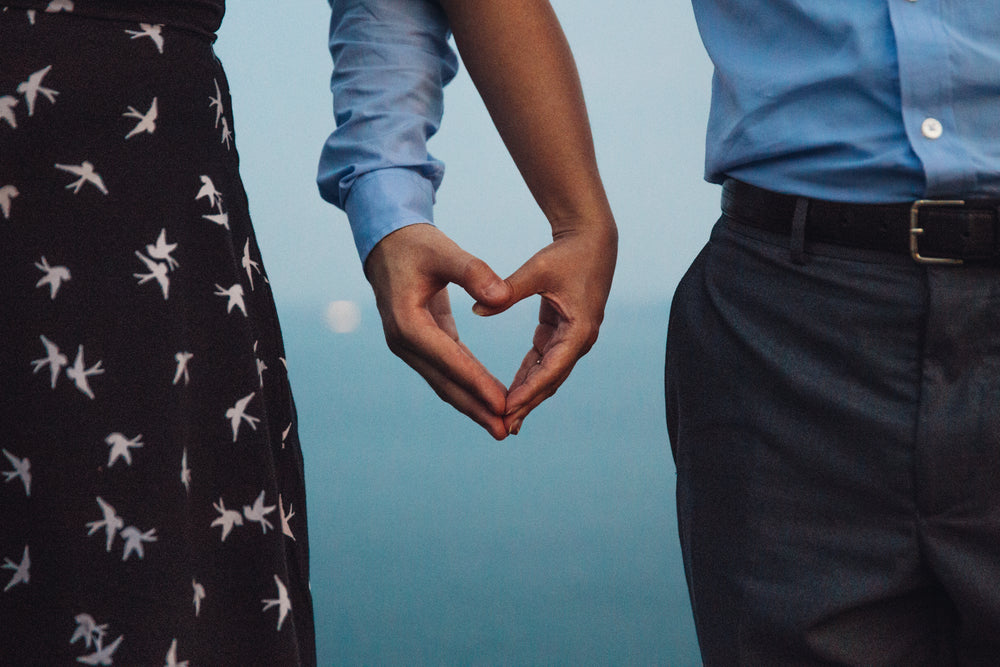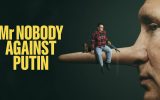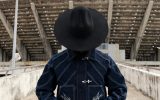By Phaysal Phagge
It is difficult to write about love when everything you know about it has been anything but, Harder still when you have reached a point of mental drain from yearning for the kind of love you know you deserve, and in that place of utter exhaustion, you have resolved that love is a luxury you may never afford and that is okay.
Human resilience however forces us into adaptability sometimes long before we know we need it. In the 33 years I’ve been alive on this fledgling planet – about 22 of which I carried the weight of the damning awareness of my unique difference – I have had to see love as different things.
I am a Muslim gay man – a confluence of identities that mixes poorly at best and clashes with life-threatening consequences at worst – for whom love was submission before it became anything else.
You begin to learn about love through your interaction with the adults in your life, and for a precocious Muslim child in the outskirts of Kano raised by a divorcee – a used woman – human love was abandonment. I had learnt of another kind of love earlier however that I was taught is enduring – the love of /for Allah.
Allah’s love has been mentioned in the Qur’an many times in different contexts, all of it interconnected in its ubiquitous demand for submission.
Qur’an 2:222 captures this best and it says, “… for Allah loves those who turn to Him constantly and He loves those who keep themselves pure and clean.”
I knew this wasn’t a love for me as my understanding of the religion and myself grew over the years. By 12 I knew I was gay even if I didn’t have a word for the primal affection I had for the same sex. I also knew that homosexuality is a grave sin in Islam, punishable in some Islamic sects by death. Love for me, I learned, could only happen in the curtailing of who I know myself to be.
“It is not being gay that is the sin, it is practicing homosexuality,” an Islamic scholar mentor told me at 15 when I couldn’t bear anymore the disconnect between this powerful emotion that felt like worship and its wrongness to Allah. I could have love, he assured me, in submitting my ungodly desires to Allah.
I could see the flexibility of this demand from that young age. It was in the possibility he didn’t mention – that while Islam only allows me love as submission the option of love as resistance exists over and above that constrain. Yet resistance itself is a luxury a 15-year-old who is dependent on his parents for something as basic as sustenance cannot afford.
The knowledge that I could resist my erasure by daring to love when the time is right was fortifying enough, and anchored by the fear of potentially losing my parents’ goodwill I will find comfort in that fortification conferred by the knowledge that one day I will resist but until then I will survive. Resistance will find me again soon enough.
It was Albert Einstein in one of his not-so-famous quotes where he asked, “How on earth are you ever going to explain in terms of chemistry and physics so important a biological phenomenon as first love?” that led me gently to my first love.
I couldn’t explain how love managed to cross my boundary of fear, dismiss all the warning bells forewarning of the destabilization of my near-perfect survival pod and lodge itself in my heart. My first love came with a force of daring I didn’t know I harbored. Love, I discovered at 22, is daring even where it is unrequited. For that was the nature of my first love – unrequited.
I fell in love with my course mate, a friend of 2 years, only to discover that his heterosexual nature wouldn’t allow him to love me the way I hoped to be loved. Worse still, his homophobic nurture set out to punish me for yoking him with my poisonous affections. My crime was not sexual harassment or any such abhorrence, it was daring to love and speak that love into life.
The poetic language I formulated in my head to convey my love, to my chagrin, rather than melt his heart hardened it beyond recognition. I learned that day, standing by the roadside and willing a taxi to arrive and return me to my off-campus accommodation in Gwagwalada, that grief is a multitude all by itself and it can undo you or hold your delicate pieces together till you heal. My grief at that instant was sadness, rage, and fear coursing through my body to keep me from walking into traffic and ending my life.
I also learned that the response to, “I love you with all the senses in my body,” won’t always be, “I love you too.” And that this especially holds true for queer bodies in homophobic societies.
Whether we are making this declaration of adoration to another queer body or knowingly or unknowingly to a heterosexual body, we could be rejected with a, “God forbid,” borne of fear. Fear, driven by a need to self-preserve, or one rooted in irrationality – a phobia. I have experienced both at the hands of queer and non-queer objects of my boundless affections alike.
My resolution that day as I walked into my house, made newly dark by my grief, was to give in to the affections of the older man who had been knocking on my door while I fantasized about loving my friend. It was a practical solution that not only allowed me a chance at exploring my sexuality for the first time in my 22-year-old life but also conferred protection from the hostility of a homophobic society. It worked.
Years later I stumbled upon a quote whose origin I can’t say and my relationship with older gay men made so much more sense.
“For love loves power. That is why we can suicidally fall in love with others but can rarely reciprocate the love of those suicidally in love with us.”
I sought the power they wielded to shield myself and they sought my emotional unavailability and naivety hoping to break the former and use the latter to their advantage. The latter they easily managed, the former not quite.
A common rhetoric against homosexuality in Northern Nigeria sells the untruth that gay people are recruited into homosexuality by older men who prey on boys’ young enough to be their children. The preying on bit happens, but far from recruiting, what often holds is that gay boys and girls, in their pursuit of self-exploration, are forced to seek out more stable individuals to explore with. Safety will always be a primary drive for the human animal.
For years, when in conversation with other queer persons my age, I will say without breaking stride that, “I am more into older men than men my age.” It was a prayer to the child inside, who, broken from the hurt of my first love, stays shrunken, refusing to venture back where it once hurt, to love freely without balancing power scales.
Love became resistance when just before my graduation from University of Abuja I woke up to two shattering news items, one personal, the other political.
The former came in the form of a text from my Dad expressing his disappointment in me for bringing disrepute to the family name by living a shameless sinful life miles away from home. He had heard about my relationship with a 50+ years old ex-pat who was alleged to be footing the bills of my uncharacteristically lavish life in school. The latter was the news that the homophobia that led me into said relationship had just received a stamp of legal approval in the form of a newly passed law signed by then-president Goodluck Jonathan. The Same-Sex Marriage (Prohibition) Act SSMPA.
The law meant little to me at the time. I rather thought it was ridiculous because by its title I figured it was trying to prevent me from ever legally marrying, and I never fancied the institution of marriage and wouldn’t have considered it even had I been a heterosexual. But the confluence of my personal life coming undone and the homophobic violence on my body being further legitimized by a ‘secular’ government made both personal and political merge into a fiery onslaught of oppression that threatened to snuff me out.
“Not only are you offending Allah with your ways,” the electronic voice of my mother echoed over a phone call in the afternoon of that unfortunate day, “you are also committing a crime. Is it your wish to spend a miserable life here and in the afterlife?”
I wanted to tell my mother then that I had no wish for an afterlife. I wanted to tell her about unjust laws and how illegality doesn’t mean wrongness. Above all, however, I wanted to tell her that love by its very nature is offense because it doesn’t seek your permission before it invades your heart and makes a home of it. It pays no mind to the losses you could incur, of peace of mind, of emotional stability, of social standing if you’re queer. Love just is.
When push comes to shove and you’re up against a wall with no option but to fight or accept defeat love can become resistance. A distillation of all your rage at the human injustice that singled you out for state sanction for daring to love differently.
Whether you resist by folding back into yourself and renouncing your person, or by matching violence with violence at the risk of becoming a social outcast, choosing to be alive and enjoy it in the face of homophobia is resistance in its own right. It was my resistance then and has remained so since.
I wear my perfume de resistance – a scent of daily protest – each time my feet hit the ground in the morning to ward off the persistent stench of homophobic violence I am always just one incident away from for simply being. I wear it as a mating call too when I express flamboyantly in public willing another queer person to see me, daring homophobes to challenge this kind of self-expression and sending a prayer for strength to my inner child hoping he ventures out someday to see the man I have become.
Love is brilliant hope now. Sitting at my desk at work attending to one customer after another with the knowledge that these same people I provide solutions for could turn on me overnight and being at peace with that knowledge. Not because it is right – it is not – but because in the grand scheme of things the only one who matters is me. And the lover I am yet to meet.














